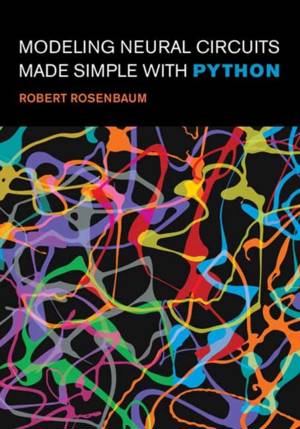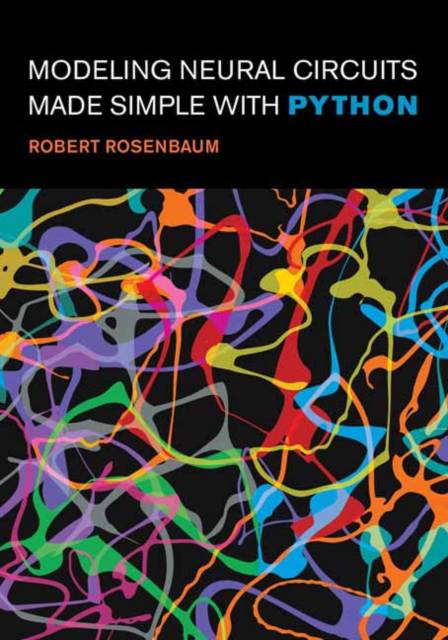
- Afhalen na 1 uur in een winkel met voorraad
- Gratis thuislevering in België vanaf € 30
- Ruim aanbod met 7 miljoen producten
- Afhalen na 1 uur in een winkel met voorraad
- Gratis thuislevering in België vanaf € 30
- Ruim aanbod met 7 miljoen producten
Zoeken
Omschrijving
An accessible undergraduate textbook in computational neuroscience that provides an introduction to the mathematical and computational modeling of neurons and networks of neurons. Understanding the brain is a major frontier of modern science. Given the complexity of neural circuits, advancing that understanding requires mathematical and computational approaches. This accessible undergraduate textbook in computational neuroscience provides an introduction to the mathematical and computational modeling of neurons and networks of neurons. Starting with the biophysics of single neurons, Robert Rosenbaum incrementally builds to explanations of neural coding, learning, and the relationship between biological and artificial neural networks. Examples with real neural data demonstrate how computational models can be used to understand phenomena observed in neural recordings. Based on years of classroom experience, the material has been carefully streamlined to provide all the content needed to build a foundation for modeling neural circuits in a one-semester course.
- Proven in the classroom
- Example-rich, student-friendly approach
- Includes Python code and a mathematical appendix reviewing the requisite background in calculus, linear algebra, and probability
- Ideal for engineering, science, and mathematics majors and for self-study
Specificaties
Betrokkenen
- Auteur(s):
- Uitgeverij:
Inhoud
- Aantal bladzijden:
- 168
- Taal:
- Engels
- Reeks:
Eigenschappen
- Productcode (EAN):
- 9780262548083
- Verschijningsdatum:
- 19/03/2024
- Uitvoering:
- Paperback
- Formaat:
- Trade paperback (VS)
- Afmetingen:
- 178 mm x 254 mm
- Gewicht:
- 356 g

Alleen bij Standaard Boekhandel
+ 133 punten op je klantenkaart van Standaard Boekhandel
Beoordelingen
We publiceren alleen reviews die voldoen aan de voorwaarden voor reviews. Bekijk onze voorwaarden voor reviews.











